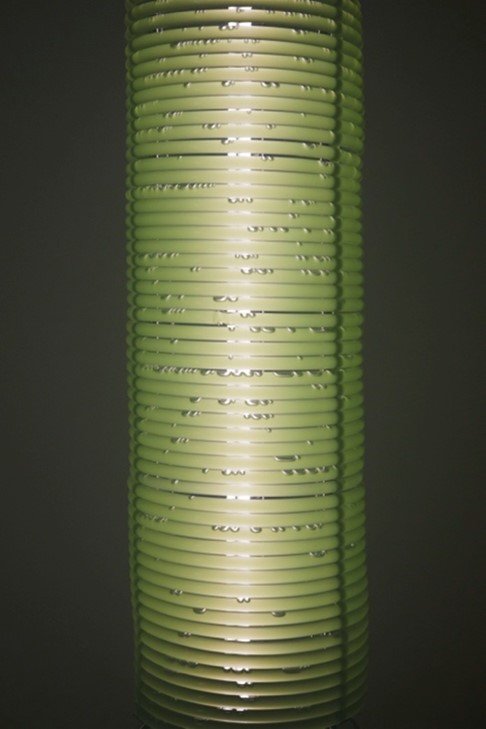VERONIKA MIŠKOVIČOVÁ
research interests: artistic research, transdisciplinarity, biotechnology, microbiology, environmental sciences
Veronika Miškovičová is an architect and researcher interested in transdisciplinary collaboration in architecture, design, biotechnology, and ecology. Veronika’s education encompasses studies at the Academy of fine Arts, Architecture and Design in Bratislava (SK) and holds a Master’s degree from the Academy of Arts, Architecture and Design in Prague (CZ). Her current mission is to explore the potentials of synergetic behavior between nature and technology while actively collaborating with students and young professionals to articulate further potentials of environmentally oriented architectural thinking and its relation to spatial forms. With her research project, she explores the potential of inter-species collaboration while developing biotechnological living instruments inspired by the natural living conditions of the organisms. Her latest works explore the potential of long-term microalgae growth in various environments. In collaboration with the scientiscs, she collects and data from the instruments, to help better understand the vital role of microalgae in the local and global environment.
Research
Technological research in the context of the current ecological, geo-political, and socio-economic situation should open up new possibilities for coexistence with the surrounding environment on all scales. A direct correlation between the fossil fuel-dependent industry and the overall degradation of natural habitats and the environment leads us to re-evaluate the importance of these industries in our economic sectors. Given current technological developments and the impact of industry on all areas of our lives, and the priorities of the European Commission’s New Green Deal, which include achieving climate neutrality by 2050, protecting biodiversity, and developing circular economic systems, it is necessary to progress innovative ways of forming symbiotic ecosystems and to continually develop their potential and provide an opportunity to present human and non*human organisms from new perspectives. Project Hacking Nature deals with the research on the possibility of integrating biotechnology into architecture, design, and urban environment by developing systems inspired by the living conditions of various microorganisms, especially microalgae. It also analyzes and compares different approaches using algal biotechnologies, focusing in particular on their application to the fabrication of biotechnological apparatuses as tools for educating public and private sectors about new ways of improvement of the quality of the local environment.
